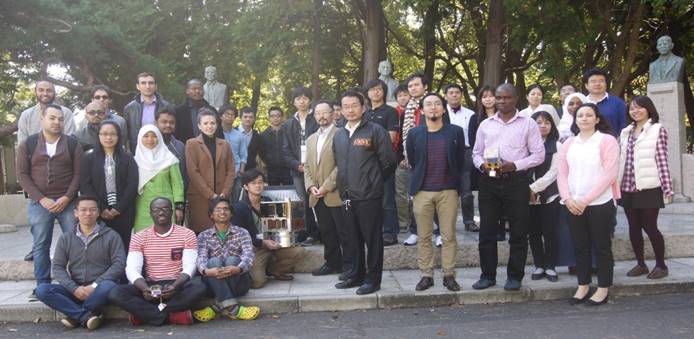
Post-graduate study on Nano-Satellite Technologies (PNST)
About PNST
United Nations/Japan Long-term Fellowship Programme on Nano-Satellite Technologies is hosted by Kyushu Institute of Technology, Japan
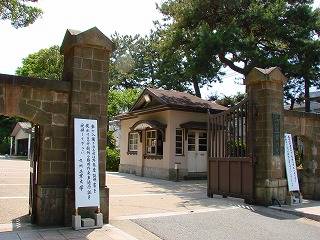
History of PNST
The PNST Fellowship Programme was initiated in 2013 by the United Nations Office for Outer Space Affairs (UNOOSA) and the Government of Japan in conjunction with the Kyushu Institute of Technology (Kyutech).
PNST offers six fellowships per year (three Masters, three Doctoral) to aspiring post-graduate level students who are interested in studying nano-satellite design and learning basic space technology development. All PNST fellowship students enroll in the English-based Space Engineering International Course (SEIC) at Kyutech, which was launched in April 2013. SEIC students hail from all over the world.
Where SEIC students come from (as of April 2023)
| Number of Students (47 in total) |
Nationality (25 countries) |
|---|---|
| 15 | Japan |
| 4 | Thailand |
| 2 (10 in total) | Cambodia, France, Mexico, Zimbabwe, Vietnam |
| 1 (18 in total) | Bhutan, Brazil, China, Egypt, Ethiopia, Honduras, Laos, Mongolia, Nepal, Paraguay, Philippines, Rwanda, South Africa, Spain, Sri Lanka, Sudan, Trinidad and Tobago, Turkey |
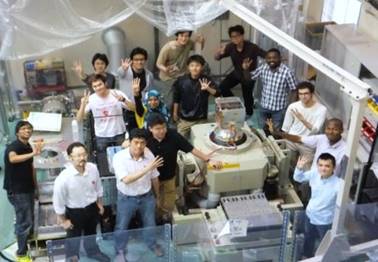
Application Requirements
- You must be age 35 or less as of April 2nd of the year that you enroll at Kyutech.
- Good command of the English language (reading, writing, speaking and listening)
- Citizen of a non-space faring nation
- Bachelor and/or Master Degree (or equivalent) in engineering-related subjects (degrees in different technological fields can be considered)
- Ability to make professional or academic use of experience gained in PNST fellowship
- Passionate about space
PNST program and Future Opportunities
The PNST program provides extensive research opportunities in nano-satellite systems through the use of space research facilities at Kyutech. PNST students will join a space development project at Kyutech. Through the project, each participant is expected to identify a research topic and carry out the research work under the supervision of Kyutech faculty. The participant is also required to satisfy the graduate course work requirements of SEIC. Upon successful completion of a thesis and its defense, the participant is granted either a Master of Engineering (or Science) or a Doctor of Engineering (or Doctor of Philosophy in Engineering) degree. Upon graduation PNST fellows are expected to return to their home countries to help develop the space sector.
Fellowship terms and Student life
- You would start in October: Master’s Program is 2 years and Doctoral Program is 3 years
- Enrollment fee, tuition fees, and economy class airfare from home country are covered
- PNST fellows receive about 144,000yen per month for living expenses
- You are required to enroll in Space Engineering International Course (SEIC)
- Opportunities to learn Japanese language -- and also Japanese culture
- Instruction in English, except Japanese language class
Space projects at Kyutech
Kyutech has numerous world-class space facilities and space projects, including:
- Electrostatic discharge testing in space plasma environment
- Space-use material degradation testing under UV and atomic oxygen flux
- Nano-satellite environment testing (vibration, shock, thermal vacuum, thermal cycling, outgassing, EMC & antenna compatibility, etc.)
- Hypervelocity impact testing using two-stage light gas guns (up to 6.2 km/s)
- BIRDS nano-satellite series
- HORYU nano-satellite series
- Ten-koh nano-satellite series
- SPATIUM nano-satellite series
- Aoba-Velox nano-satellite series
- KITSUNE 6U satellite
and many others!
Thermal vacuum chamber at CeNT
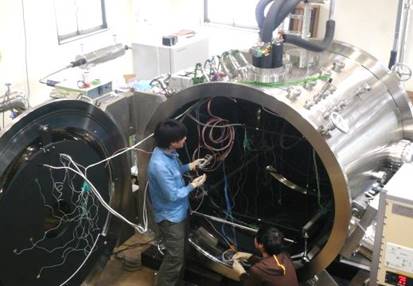
How to Apply
Your fully completed application and all other required documents should be submitted electronically. The application deadline is typically in January for October admission. Selection is made on the basis of each applicant's academic credentials, relevant work experience, and future potential. To apply to PNST, visit the PNST website of the United Nations.
https://www.unoosa.org/oosa/en/ourwork/access2space4all/PNST/PNST_Index.html
Kyushu Institute of Technology
Kyushu Institute of Technology (Kyutech) is a Japanese national university founded in 1909 – in the city of Kitakyushu. Kitakyushu is known as the birthplace of modern industry in Japan. Over the past 20 years, Kyutech has offered courses in space engineering at undergraduate and graduate levels. In 2004, Kyutech established the Laboratory of Lean Satellite Enterprises and In-Orbit Experiments (LaSEINE) as a special research center dedicated to studies on spacecraft charging, spacecraft material degradation, and hypervelocity impact. In 2010, a new research division, the Centre for Nanosatellite Testing (CeNT) was added to LaSEINE. CeNT provides all the environmental tests necessary for a nano-satellite with size up to 50cm x 50cm x 50cm and weight up to 50kg. In May 2012, HORYU-II, a nano-satellite built by Kyutech students, was launched to low-earth orbit and operated successfully. On 17 February 2016, HORYU-IV, a nano-satellite built by SEIC students, was launched into space.
HORYU-IV nano-satellite
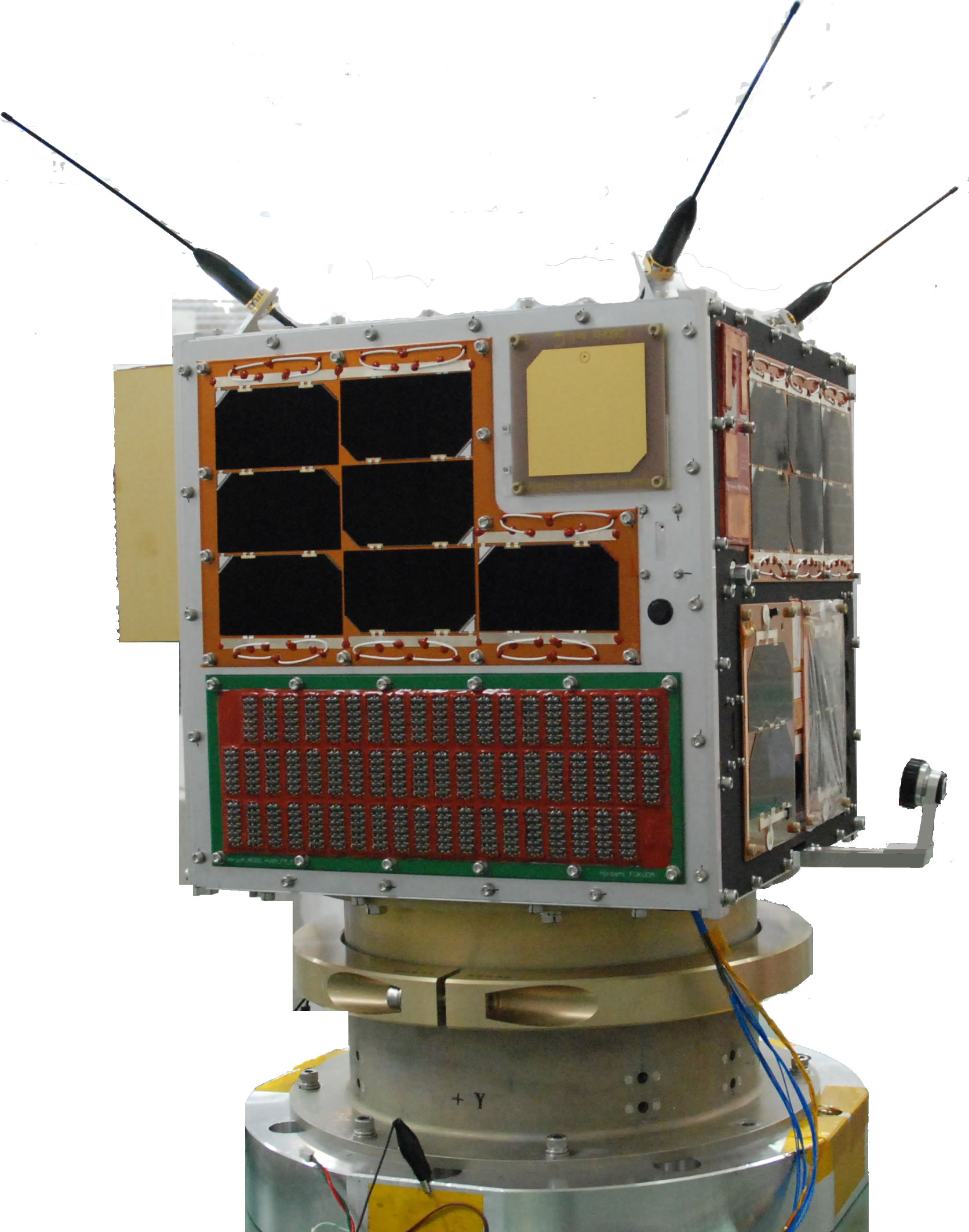
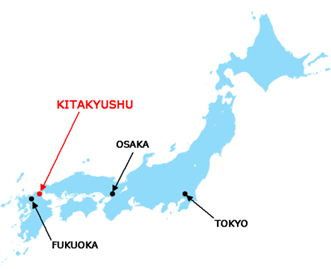
Additional information
UN-OOSA: https://www.unoosa.org/oosa/en/ourwork/access2space4all/PNST/PNST_Index.html
Center for Nanosatellite Testing, Kyutech: https://kyutech-cent.net/index_e.html
HORYU4 Project Member
